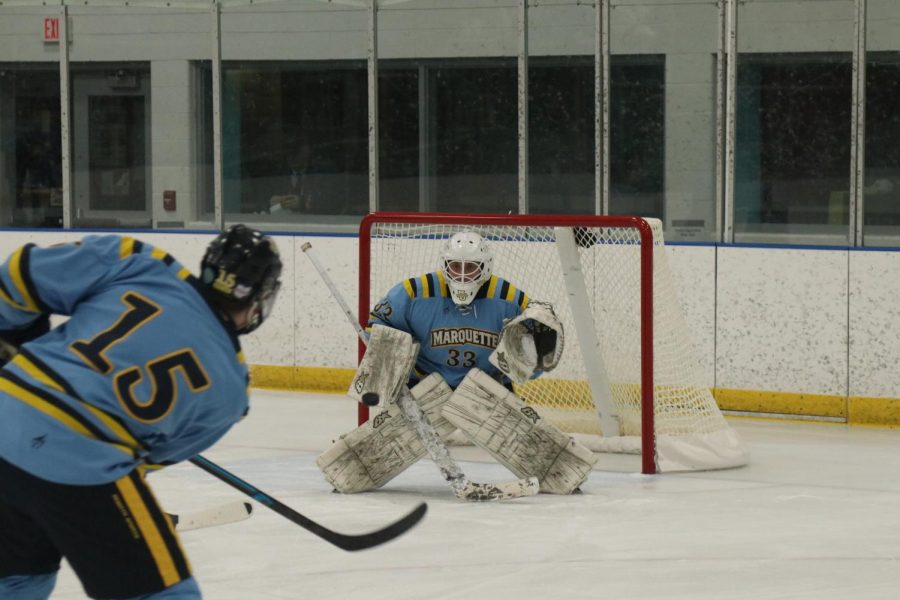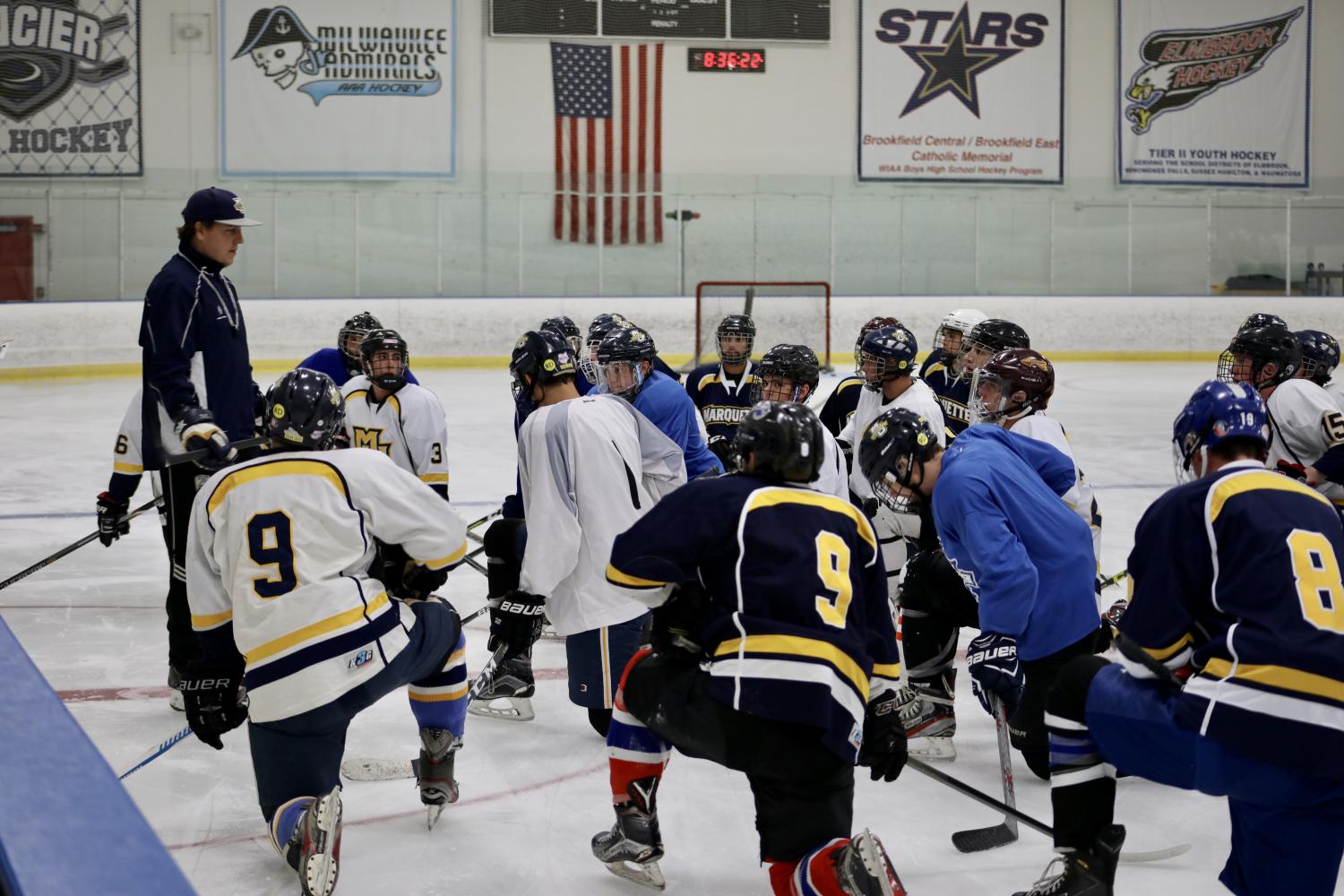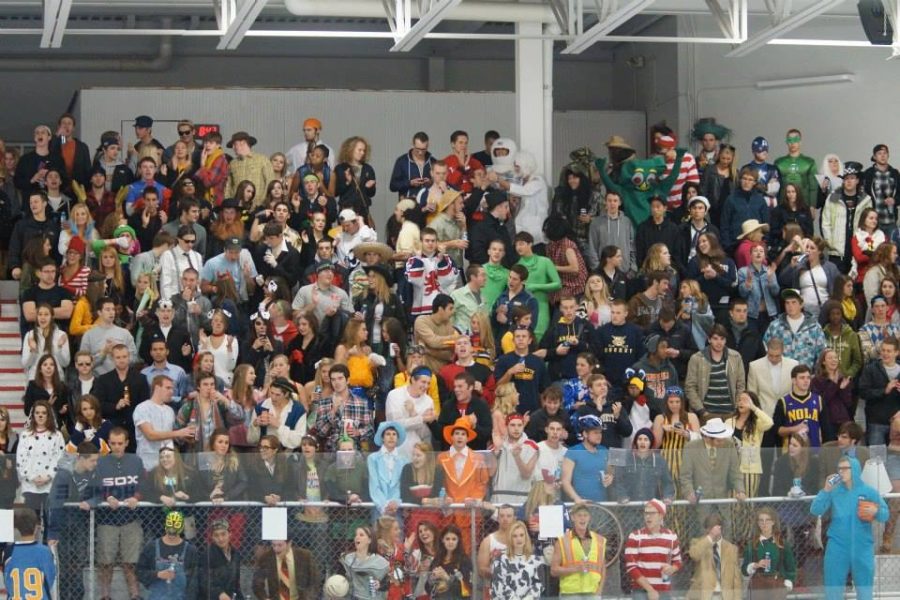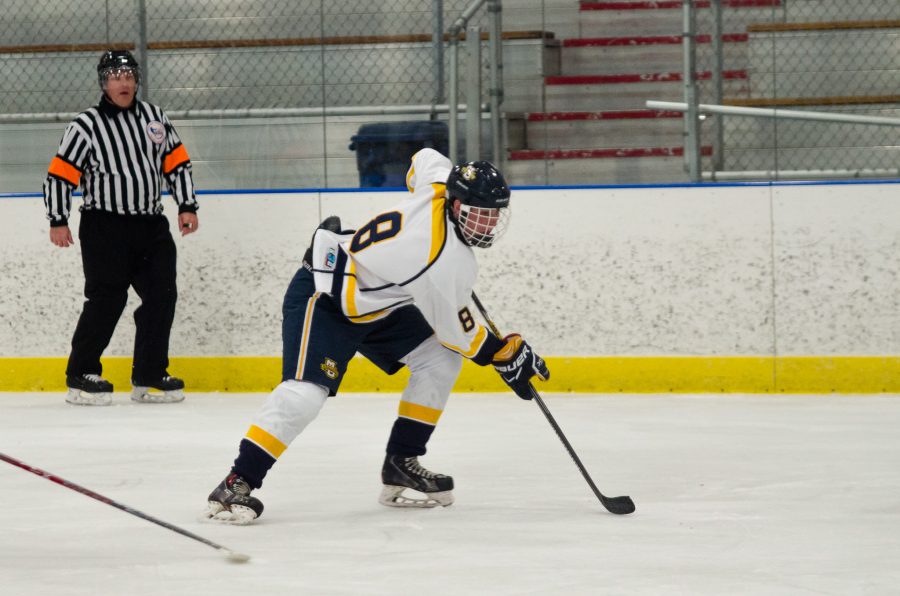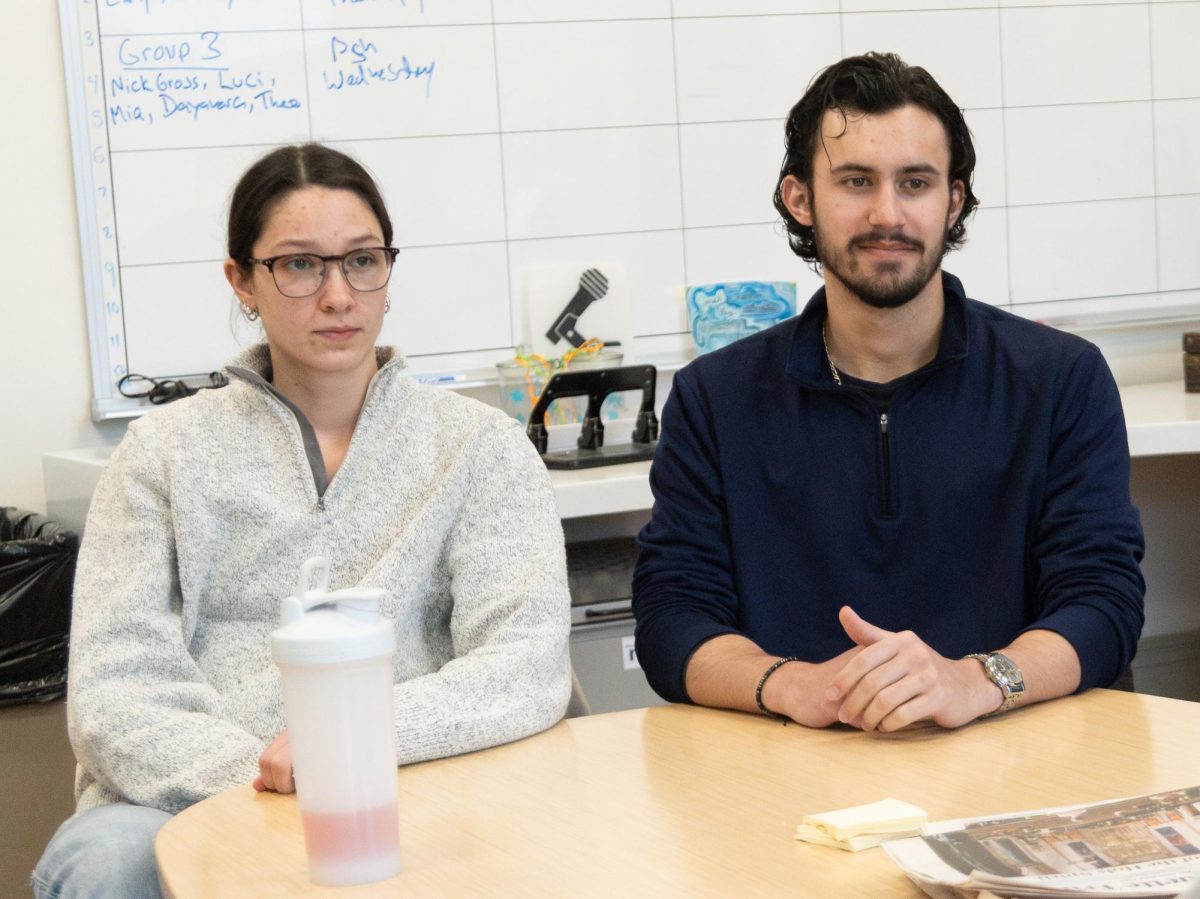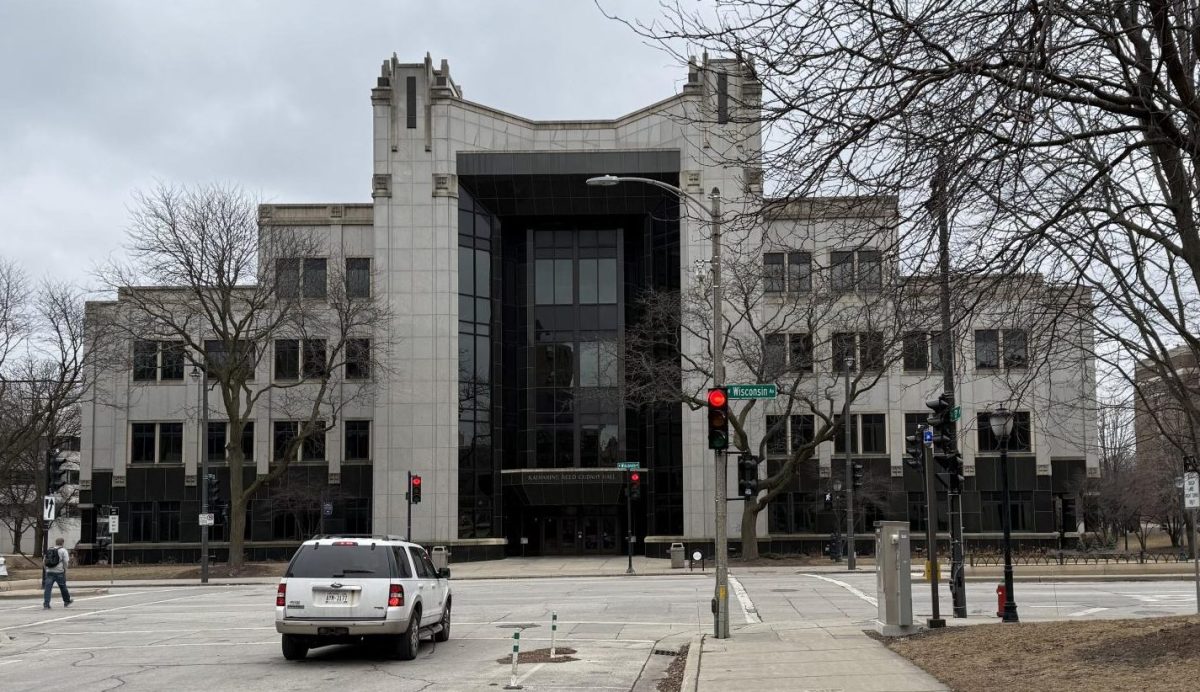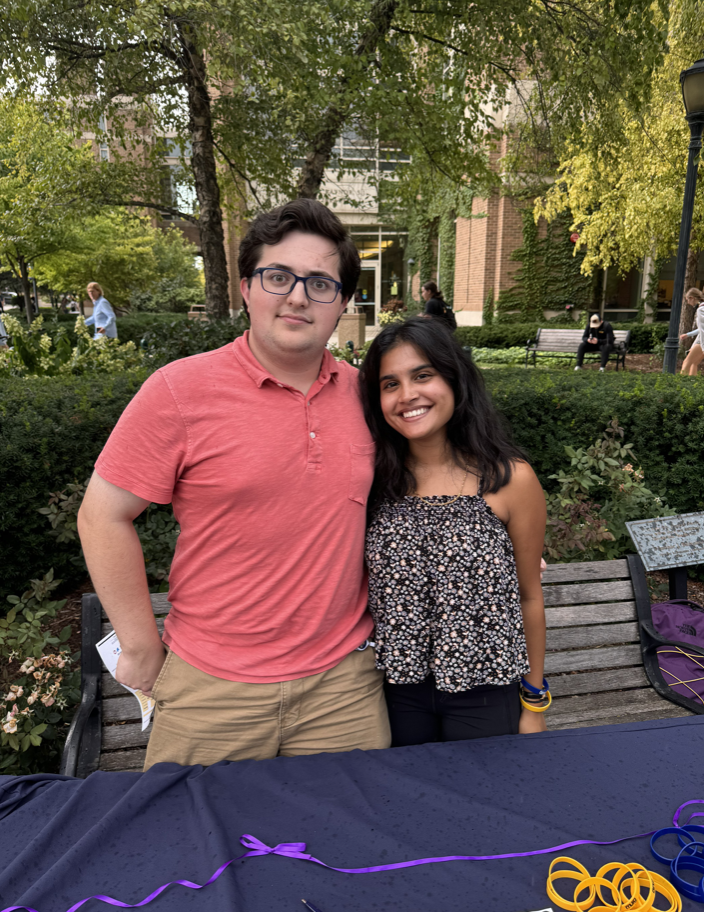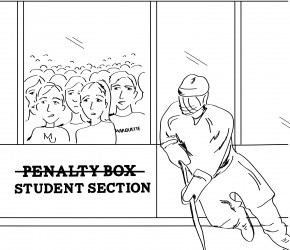
Club hockey players were still on the ice at The Ponds of Brookfield Ice Arena Oct. 25 when they received word that the three buses bringing student fans back to campus were forced to pull over following an incident involving an illegal substance. Despite the team’s lack of involvement in the incident, it faces the brunt of the punishment.
The team can no longer provide fan buses through Lamers Bus Lines Inc., and Marquette’s Department of Recreational Sports will not permit the use of an alternative bus company. This ban on busing resulted in a dramatic attendance drop from upward of 500 fans down to around 20.
Club hockey worked the past three years to drum up fan support – no easy feat for a club sport playing 20 minutes away from campus by car. It built momentum, setting record numbers of players at tryouts and spectators at games this season, with fan turnouts even surpassing some varsity sports. By these counts, the team has been a success story for the university.
But now without available transportation to the games, fans are facing consequences that overshadow the success of the team due to the actions of a few.
The suspension of fan buses has halted the team’s growth, and if fans cannot make it out to games, the team will lose support this season and possibly in the future.
The club’s inability to supervise students on the buses was cited by the Department of Recreational Sports as the reason it is not allowed to commission a new company. But how would the team ever have been able to supervise fans if players were still on the ice when the buses left?
It is wrong for the club, along with its loyal fan base, to bear the penalty when the incident involved a few fans and the players had no direct role, having only commissioned the buses on which the incident took place.
Players put in the time and money, paying dues of $1,800 for new players and $1,600 for returners, for their club to excel. The team receives just $9,945 from Marquette Student Government’s Student Organization Funding Committee for the semester, leaving the majority of funding for usage of the ice rink, referees, jerseys and fan transportation predominantly up to the players themselves through their dues.
The team takes on the financial burden of the fan buses, so they should be allowed to seek out another company while taking action to ensure such an incident does not occur again.
After appealing to MUSG for help and receiving no advice on how to proceed, the team began petitioning in hopes of drawing attention to the issue. Rather than writing the incident off, MUSG and the Department of Recreational Sports should hear the team out and consider bringing back the buses for the last few weeks of the season.
The club hockey team showed it can draw spectators as well as follow the rules. Surely they will proceed with caution from now on. Club hockey has been a success for the university, and the actions of a few irresponsible students should not put the team’s future success in jeopardy.


